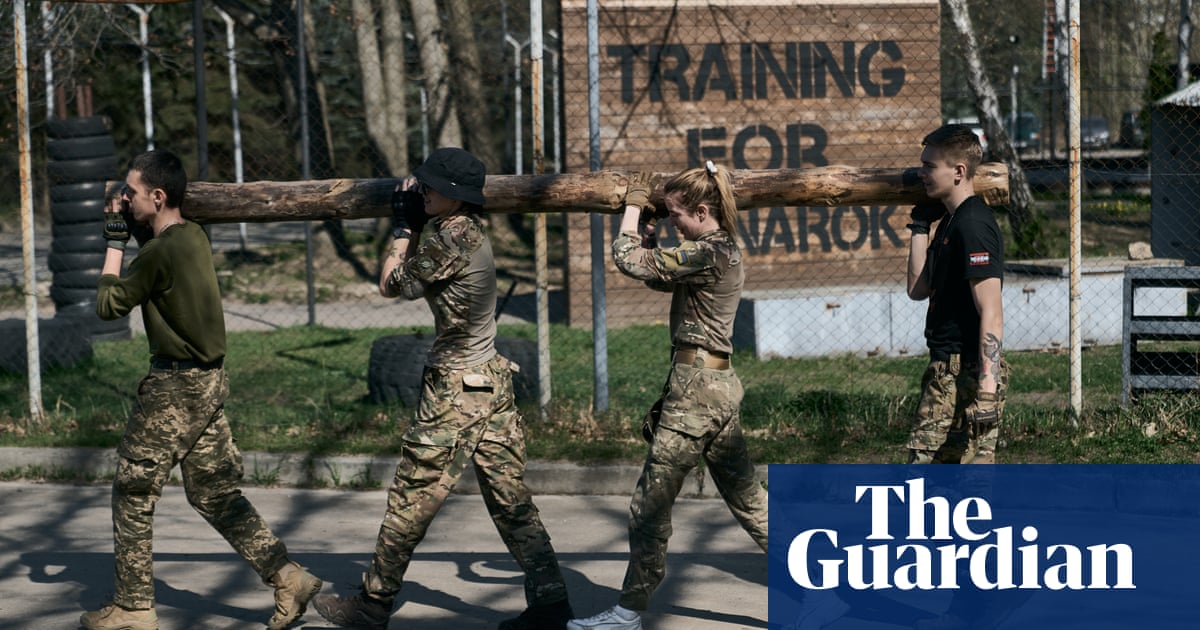A senior official in Joe Biden’s administration has told the Associated Press that the US is urging Ukraine to quickly increase the size of its military by drafting more troops and lowering the conscription age to as young as 18. The official, speaking to the Associated Press on the condition of anonymity, said on Wednesday the outgoing Democratic administration wants Ukraine to lower the mobilisation age from 25 to help expand the pool of fighting age men available.
The Biden administration is preparing another urgent weapons package for Ukraine, this time worth $725m, two US officials said on Wednesday. It is predicted to include land mines, drones, Stinger anti-air missiles, and Himars ammunition, including GMLRS rockets with cluster warheads. The formal notification to Congress of the weapons package could come as soon as Monday, one official said. It is much more than the US president’s recent use of his presidential drawdown authority (PDA), which allows him to use weapons stocks to help allies in an emergency. Recent PDA announcements have typically ranged from $125m to $250 million. Biden has an estimated $4bn to $5bn in PDA already authorised by Congress that he could use before Donald Trump takes over on 20 January.
Volodymyr Zelenskyy is due on Thursday to sign Ukraine’s 2025 budget, which calls for the country’s first wartime tax increases. The finance minister, Serhiy Marchenko, said Ukraine hoped tax increases would generate additional budget revenues of 141bn hryvnia (US$3.39bn). The prime minister, Denys Shmyhal, said record sums would be directed to weapons production and purchases including modernising Ukraine’s defence industry and buying drones.
There was no word on whether South Korea will supply arms to Ukraine after Kyiv’s defence minister, Rustem Umerov, met with the South Korean president, Yoon Suk Yeol, in Seoul on Wednesday. Yoon’s office said the two sides agreed to continue to share information on North Korean troops in Russia and North Korean-Russian weapons and technology transfers, while closely coordinating with the US. Umerov briefed other South Korean officials on the status of the Russia-Ukraine war and expressed hope that Kyiv and Seoul would strengthen cooperation, the statement said. Umerov predicted a “tangible strengthening of security for our peoples and regions”.
Russia’s rouble has plunged to its lowest rate against the dollar since the early weeks of the full-scale invasion of Ukraine in the wake of new western sanctions and growing geopolitical tensions, Pjotr Sauer writes.
Donald Trump has picked Keith Kellogg to serve as special envoy for Ukraine and Russia – a newly conceived role given the ongoing war, Gloria Oladipo writes. Kellogg served as a national security adviser to the former vice-president Mike Pence, then acting security adviser to Trump himself after Michael Flynn had to resign. Kellogg has said he would emphasise getting the two countries to the negotiating table.
Russia’s sabotage of western targets may prompt Nato to consider invoking its article 5 mutual defence clause, Bruno Kahl, head of Germany’s foreign intelligence service, has warned. The BND chief, speaking in Berlin on Wednesday, said he expected Moscow to further step up its hybrid warfare.
Nordic and Baltic states and Poland said on Wednesday that they would in the coming months step up support for Ukraine, including to its defence industry, and invest in making more ammunition available. “We are committed to strengthening our deterrence, and defence, including resilience, against conventional as well as hybrid attacks, and to expanding sanctions against Russia as well as against those who enable Russia’s aggression,” the leaders of Denmark, Estonia, Finland, Latvia, Norway, Poland and Sweden said in a statement.
The head of the EU executive, Ursula von der Leyen, called for more defence spending in Europe over the next five years, as her top team was voted in by a wafer-thin majority in the European parliament. The EU faces acute challenges, including the war in Ukraine, the return of Donald Trump and the climate crisis, all against a backdrop of deepening fears of economic decline as von der Leyen starts her second term.

